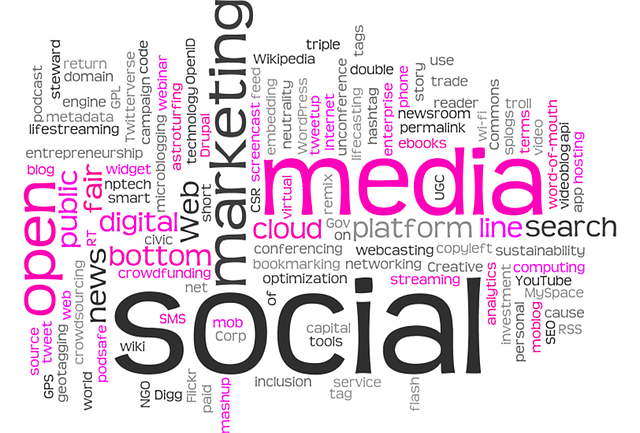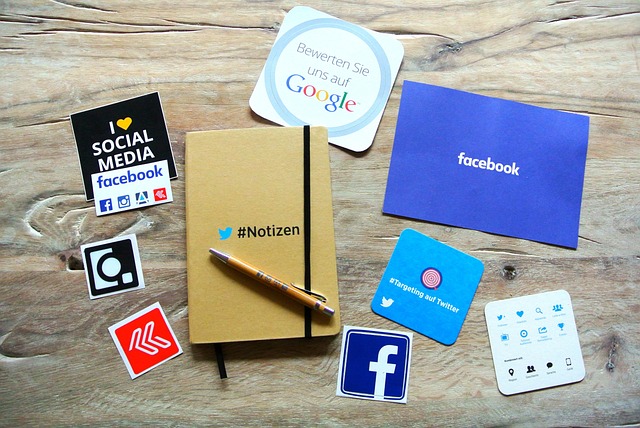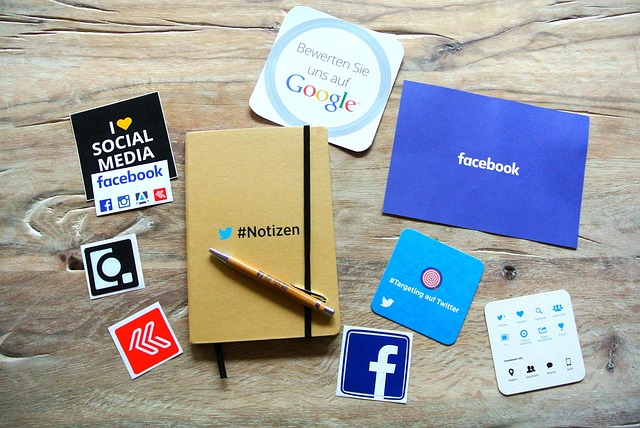In the digital age, content marketing is a dominant strategy for businesses to engage their target audience. By creating and sharing valuable, relevant, and consistent content across platforms like social media, blogs, podcasts, and email newsletters, brands build relationships, establish authority, and gain user trust. Effective content includes dynamic formats, personalized messages, rigorous research, compelling headlines, and SEO optimization. Distribution through social media and email marketing channels expands reach and drives traffic. Measuring success using KPIs such as engagement rates, conversion rates, and organic traffic growth is crucial for continuous improvement in the competitive digital landscape. Key trends shaping the future include personalization via advanced analytics and AI, along with immersive technologies like AR and VR to create interactive experiences.
In the dynamic landscape of digital marketing, content reigns supreme. This article delves into the essence of content marketing in the digital age, exploring its pivotal role in modern marketing strategies. From crafting compelling content and leveraging effective distribution channels to measuring success through key metrics, we provide actionable tips and insights. Additionally, we dissect emerging trends reshaping the content marketing horizon, equipping you with the knowledge to stay ahead in today’s competitive digital marketplace.
Understanding Content Marketing in the Digital Age

In the digital age, content marketing has emerged as a powerful strategy for businesses to engage and attract their target audience. It involves creating and sharing valuable, relevant, and consistent content to meet the needs of potential customers. This approach goes beyond traditional advertising by focusing on building relationships and establishing brand authority through informative and entertaining media. Digital marketing platforms, such as social media, blogs, podcasts, and email newsletters, offer diverse channels to distribute content effectively.
Content Marketing allows brands to showcase their expertise, gain user trust, and drive meaningful interactions. By understanding the target demographic’s preferences and pain points, businesses can craft compelling narratives that resonate with their audience. This strategic approach not only enhances brand visibility but also encourages customer loyalty and conversions, making it an indispensable component of any modern marketing strategy.
The Role of Content in Modern Marketing Strategies

In the digital age, content has evolved from a mere adjunct to the core of marketing strategies. Digital Marketing gurus have recognized that creating and sharing valuable content is an effective way to engage audiences, build trust, and drive brand awareness. Gone are the days when static advertisements ruled; now, dynamic, informative, and entertaining content takes center stage. It allows businesses to connect with their target market on a deeper level, fostering relationships that traditional marketing methods struggle to achieve.
By offering insightful articles, captivating videos, or interactive infographics, companies can position themselves as thought leaders in their industries. This strategy not only attracts potential customers but also keeps them engaged and invested in the brand. Moreover, with content marketing, businesses can adapt their messages to different stages of the buyer’s journey, ensuring a personalized experience that resonates with each consumer’s unique needs and preferences.
Creating Effective Content: Tips and Best Practices

In the realm of digital marketing, creating content that resonates with your audience is paramount. Start by understanding your target market and tailoring your messages to their needs, interests, and pain points. High-quality content should offer value, whether it’s educating, entertaining, or inspiring your readers. Engaging formats like blogs, videos, infographics, and podcasts can break through the noise of social media and email inboxes.
Best practices include conducting thorough research to ensure accuracy and relevance, using compelling headlines that capture attention, and incorporating keywords naturally for SEO purposes. Consistency is key; regular content creation keeps your audience engaged and positions you as an authority in your field. Additionally, leveraging user-generated content and collaborating with influencers can amplify your reach and enhance credibility within your industry.
Distribution Channels for Amplifying Your Content

In the realm of digital marketing, distributing your content effectively is key to reaching a wider audience and maximizing engagement. Social media platforms like Facebook, Instagram, Twitter, and LinkedIn serve as powerful tools, allowing you to share blog posts, videos, infographics, and more, thereby increasing brand visibility and driving traffic back to your website. These channels enable you to connect directly with potential customers, fostering interaction through comments, shares, and likes, which can significantly boost the reach of your content.
Email marketing is another strategic distribution channel that shouldn’t be overlooked. By curating a list of subscribers interested in your niche, you can send personalized content updates, offers, or news, ensuring your audience stays engaged. This direct communication method not only amplifies your content but also builds strong customer relationships by providing valuable information and fostering trust.
Measuring Success: Key Metrics for Content Marketing

Measuring success is a vital aspect of content marketing in the digital marketing landscape. Unlike traditional advertising, content marketing’s impact can be more subtle and long-term, making it crucial to track specific metrics to gauge effectiveness. Key performance indicators (KPIs) include engagement rates, which capture reader interaction through likes, shares, comments, and click-throughs, indicating content resonance and appeal.
Another critical metric is the conversion rate, demonstrating how successfully content influences potential customers to take desired actions, such as making a purchase or signing up for a newsletter. Additionally, tracking backlink acquisition and organic traffic growth reveals the content’s reach and ability to attract and engage an audience naturally, thereby enhancing brand visibility and authority in the market.
Future Trends Shaping Content Marketing Landscape

The digital marketing landscape is constantly evolving, and content marketing is no exception. As we move forward, several trends are poised to shape the future of this dynamic field. One prominent trend is the increased focus on personalization. Marketers will leverage advanced analytics and AI-driven insights to create tailored content that resonates with individual audience segments. This shift promises to enhance engagement levels and drive better conversions.
Another significant trend is the integration of immersive technologies like Augmented Reality (AR) and Virtual Reality (VR). Brands are exploring these innovative tools to craft captivating, interactive content experiences. By enabling users to engage with products or services in new dimensions, AR and VR can foster deeper connections between consumers and brands, revolutionizing how we perceive and interact with digital marketing content.
